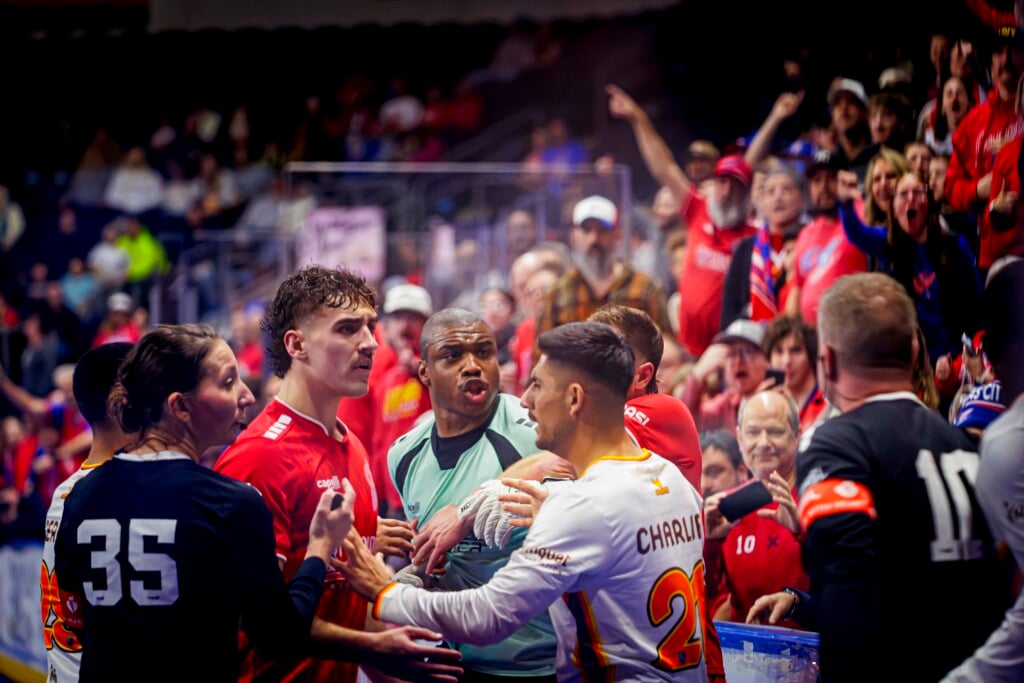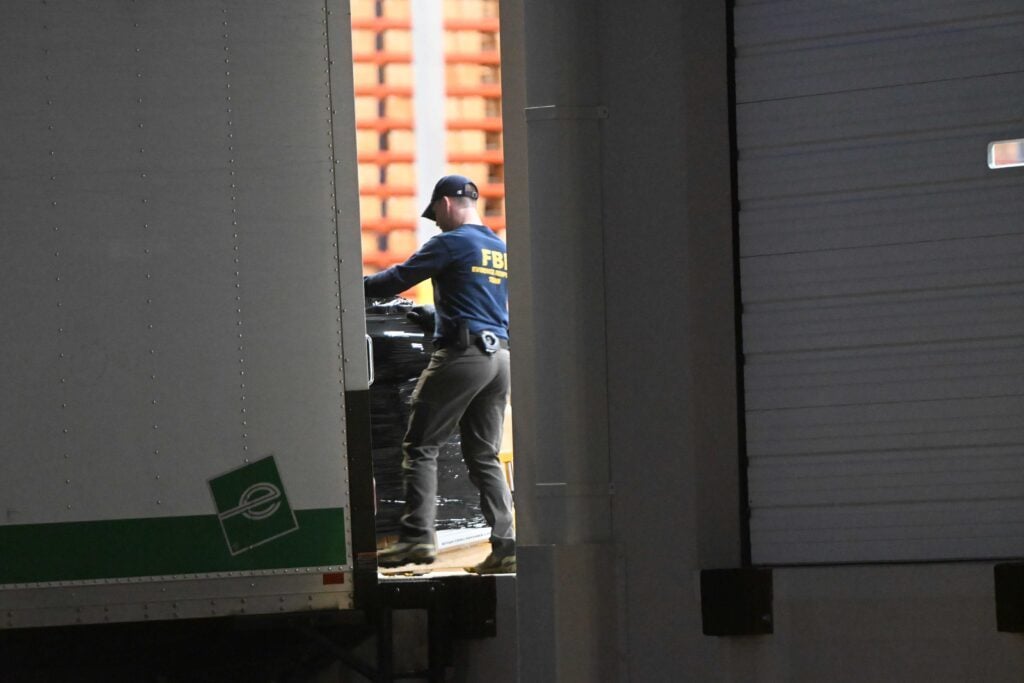Tennis’ Patrick Riley talks rhythm and groove ahead of the band’s Saturday night show at RecordBar

Alaina Moore and Patrick Riley, the husband-wife duo that is behind Tennis, are already picture-perfect – the kind of couple you find yourself watching enviously at some cozy brunch spot while they trade tender smiles over gooseberry pancakes or something. The Denver band’s honeymoon-flavored full-length debut, Cape Dory, was a convincing mix of dreamy, beachworthy 1970s-inspired pop, and their follow-up, Young & Old, was much of the same.
But on Tennis’ November-released EP, Small Sound, the energy has changed – the honeymoon is over. Lead vocalist Moore works the album’s five songs like a woman in a little black dress working a high-end cocktail party. She saunters smoothly over lush 1970s organ notes on “Mean Streets,” flirts coyly on “Timothy,” is the envy of the dance floor on “Cured of Youth,” gives us a dark-corner moment of intimacy on “Dimming Light,” and leaves a mess of intoxicated hearts in her wake by the end of the groovy “100 Lovers.” (I can’t help thinking that it would have suited the soundtrack to American Hustle nicely.)
Ahead of Tennis’ gig at RecordBar this Saturday, we chatted with Riley by phone about this exciting new territory for his band and who exactly is the “Timothy” that his wife is singing about.
The Pitch: I hear all kinds of things when I listen to the Small Sound EP. “Mean Streets” is very late-’70s lounge-y, “100 Lovers” is like late-’60s power pop. It’s also a bit of a departure from what we heard on Cape Dory and Young & Old. What were some of your influences?
Patrick Riley: I think Alaina and I just got more interested in rhythm and groove over the last few years. Some of our favorite artists were Shuggie Otis and people who were playing around with tempo in a more interesting way, and that’s the thing that Alaina and I have always been trying to integrate into our music, where it’s just kind of – tempo’s a big deal to us, and we definitely pay attention to it sometimes more than melody, or just as much. This album definitely had more of a groove focus when we were writing it.
Tell me about the decision to release an EP. Is there a full-length in the works? Why these five songs in particular?
We’ve never done an EP before. We were kind of curious about it. I like the idea of an EP, because you can get across a very cohesive idea in a small amount of time, and that’s what interested us most about this EP. And we had a group of five songs that felt like they had a home together, and we also felt like what we were writing for the album – which, yes, there is an album, and it’s probably going to come out this summer. But what we were writing for the album just seemed like it was maybe going in a different direction than this group of songs, so we separated the two and decided we were going to do this small release. Right after this tour, we’re going back into the studio to put the final touches on the album.
This question is really more for Alaina, but we’ll give it a shot… The songs “100 Lovers” and “Timothy” seem like they could be written about specific people. Did you ever have a conversation with Alaina about that?
Oh, they’re absolutely written about specific people. Good, we weren’t sure if it was coming across that way, that they were about specific people, but apparently it is.
“100 Lovers” is about a previous relationship that Alaina had – it’s a very sarcastic song, in a way, and I know Alaina was definitely wanting to hint about things that she had experienced with that person, who will remain unknown.
And “Timothy” is actually about a reviewer who wrote a very scathing review about our band, but the funny thing about the review and the reason that it stood out to us was because the review didn’t have anything to do with our music. It had to do with the way we looked and the way we talked, and it was kind of this next level of criticism that was focused merely on his perception of us as people. And the reviewer’s name was Timothy.
[page]That’s not who I imagined Timothy to be, but it makes total sense now… . OK. How has being in a band together changed the way your marriage works and the way you and Alaina create music together?
That’s a good question… . Alaina and I have definitely had to work at it, because it’s not a constant. Creativity is not something you can just plan, and it changes. The way it comes about changes. Every time you go to write a new song, maybe the methods that worked to write the previous song don’t work again. Because of that, Alaina and I constantly have to revise the way we work with each other, song by song.
Just over the last two years, writing has actually been more of a struggle. It’s more difficult than it’s ever been, which is probably us just becoming better musicians and better songwriters – and with that, becoming bigger critics of ourselves.
Since we’ve had the struggle to write the EP and our upcoming album, Alaina and I have definitely had to divorce our relationship from our musical endeavors and just try and treat them as separate. When we’re writing a song, we try and isolate our relationship and keep it sacred and keep it away from our creative world.
You took a year off touring last year. What was the reason for that? What did you spend your time doing?
The funny thing is that we took a year off from touring, but we definitely did not take a year off from writing. That whole year, I’d say 50 hours a week were either in our apartment or down in Nashville writing. We were extremely diligent, and we did get a lot done, but at the same time, we’ve probably written 20 or 25 songs and we’re only going to use a small handful of them.
Our writing schedule with Tennis is a little more expensive. Before, when we wrote Cape Dory and Young & Old, we would sit down and write 10 songs, and those would be the 10 songs we’d put on the album. But now we sit down and we write songs and we just don’t stop until we have a complete body of work that we feel best portrays what we’re interested in.
A lot of times when you’re two people in a lifelong partnership and in a band, that complicates things. We’ve talked about this a little bit, but I’m curious: What have you learned about Alaina or about yourself in the course of sharing this art with her that has been unexpected?
I think we’re both just learning how much we love this. Alaina and I had both put music on the back burner when we were in college, and then we wrote a few songs for Cape Dory, and then that landed us a record deal and some definite interest in our band, which allowed us to have this career that we’re currently in.
The fact that we stumbled into this – it’s like we’ve been slowly making our way to a place where we’re happy and where we know what we’re doing and where we understand the environment, the business side and the social side. I feel like we’re finally there. I feel like Alaina has completely figured out how to sing, and she’s turned into one of my favorite vocalists that I’ve ever heard, and I think I’m learning out to help manage the day-to-day events when we’re on the road. I’m still learning everything I need to learn as a songwriter and help Alaina get the songs where they need to be. I think we’re just both at a place where we’re happy.
Tennis is at RecordBar on Saturday, January 18. Details here.




